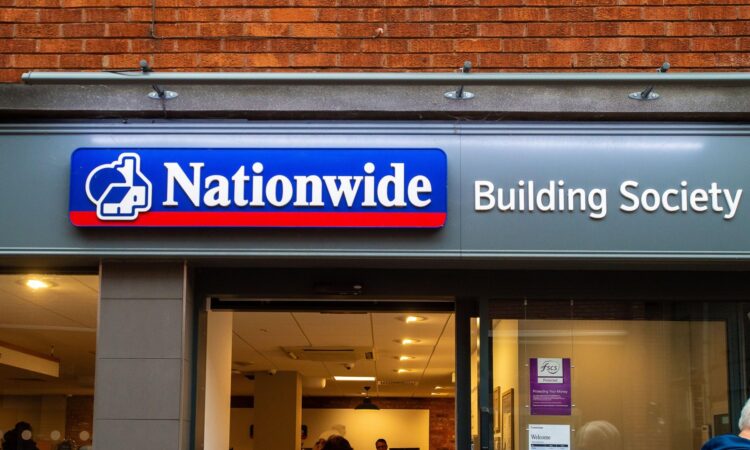Nationwide online banking and app down leaving thousands of customers unable to access accounts

NATIONWIDE online banking and app went down leaving thousands of customers unable to access their accounts.
Customers complained of issues with their mobile banking, account balances and fund transfers.
According to DownDetector, more than 2,000 people were currently complaining about the outage at its height.
Nationwide customers took to social media to highlight the service issues.
One said: “On the App, current accounts are not loading. On the website, I’m unable to make a payment – an error page loads when you click to transfer.”
Another added: “What is going on @AskNationwide would love to be able to get to my money but you can’t even load my accounts!”
While a third said: “App down again and can’t access my accounts! Don’t expect a response as you didn’t bother last time!”
In response to customers, the building society’s official Twitter/X account said: “Sorry, some account information may not be displaying online at the moment.
“We’re working to get things back to normal as quickly as we can.”
A Nationwide spokesperson said: “For a short period of time, some customers were unable to view some account information via the Internet Bank or Banking App.
“This has also been resolved. We are very sorry for any inconvenience caused.”
It is the latest glitch to hit Nationwide customers in the last few months.
In March, customers faced issues transferring money between accounts.
Can I claim compensation for the outage?
Banks don’t have to pay out compensation to customers if there has been a drop in service, unlike how telecoms companies have to.
But if you have incurred costs as a result of service issues, it’s likely you could get your money back.
For example, if a bill payment didn’t go through as a result of an outage and you’ve been charged a fee for missing it, you should be able to claim that money back.
If your credit rating has been affected by a service outage, because you got a late payment fee after being unable to make a transaction, for example, you should also keep a record of this.
If you spoke to anyone to try and resolve the problem, make a note of their name and when you spoke to them, as well as roughly what you discussed and what they advised you to do.
You can find out more details about how to complain on the bank’s website.
It is worth gathering evidence of your problems so you can make a formal complaint to the bank directly.
How to check if your bank is down
THERE are a few different ways to find out if your bank is experiencing an outage.
Consumer reporter Olivia Marshall explains how you can check.
If you’re trying to send money to someone, or you just want to check if you have enough cash for a coffee, finding your online banking is down can be a real pain.
Most banks have a dedicated news page on their website to show service problems, including internet banking, mobile apps, ATMs, debit cards and credit cards.
You can also check on any future work they have planned and what it might mean for you.
Plus, you can check websites such as Down Detector, which will tell you whether other people are experiencing problems with a particular company online.
What happens if my bank refuses to compensate me?
If you’re unhappy with how the bank dealt with your problem, you can contact the free Financial Ombudsman Service (FOS).
It is an independent body that will consider the evidence you present and make a fair decision about the action a bank should take.
The FOS can usually get involved 15 days after you’ve raised concerns with the bank.
In the case of an IT system outage at a bank, the FOS says any compensation depends on your circumstances and whether you lost out as a result.
If it thinks you did, it has the power to tell the bank to reimburse any fees, charges, or fines you were hit with, for example, if you were unable to make a payment on a credit card bill or to your mortgage provider.
It could also tell a bank to pay you for any money you didn’t receive, such as interest, if you weren’t able to pay money in.
If your credit score was affected, it may tell the bank to correct your credit file.
The FOS might also tell the bank to reimburse you for any extra costs you had to make, such as phone calls or trips to your local branch, as well as a payment for any inconvenience it caused.
Do you have a money problem that needs sorting? Get in touch by emailing money-sm@news.co.uk.
Plus, you can join our Sun Money Chats and Tips Facebook group to share your tips and stories





